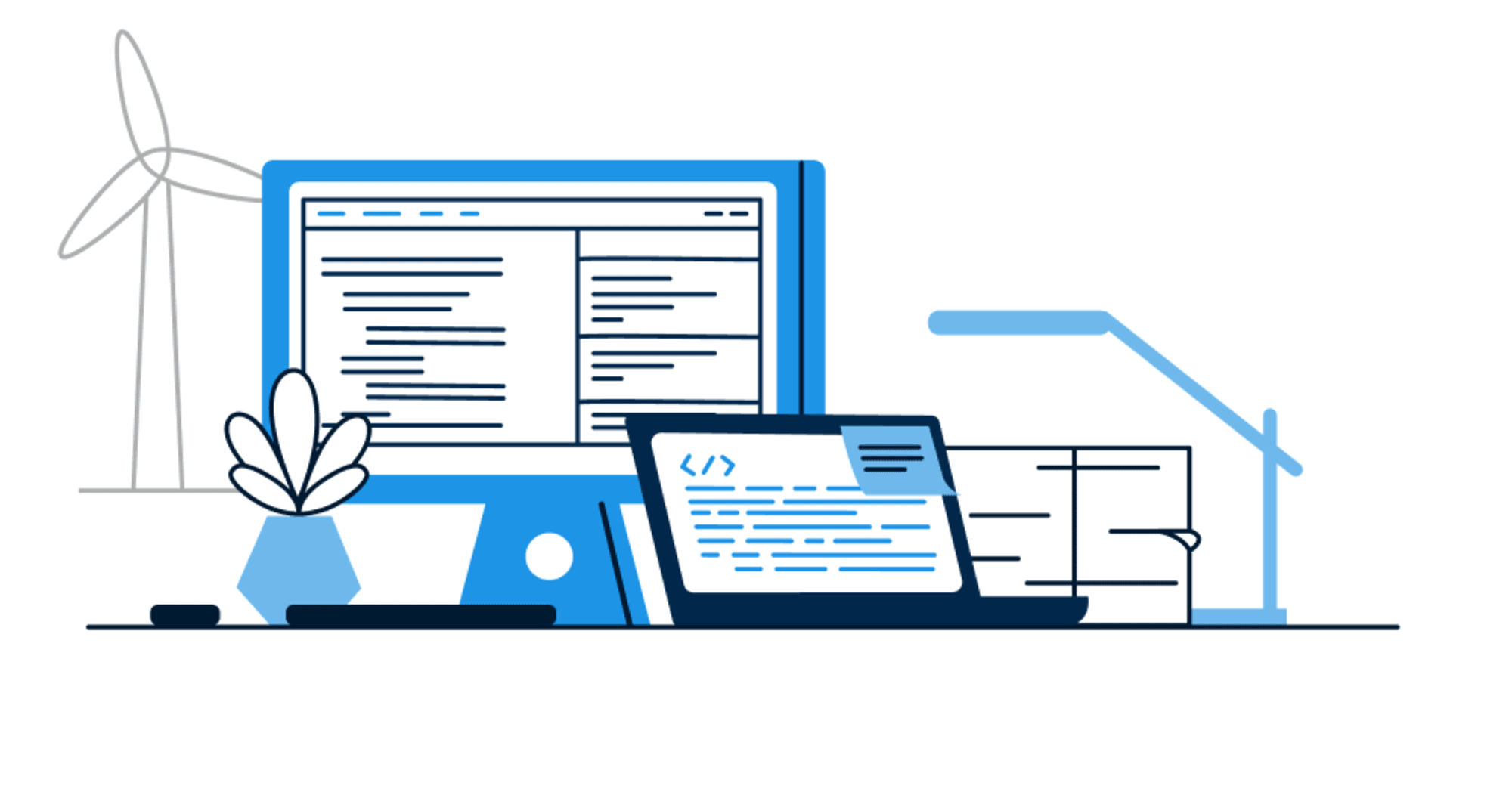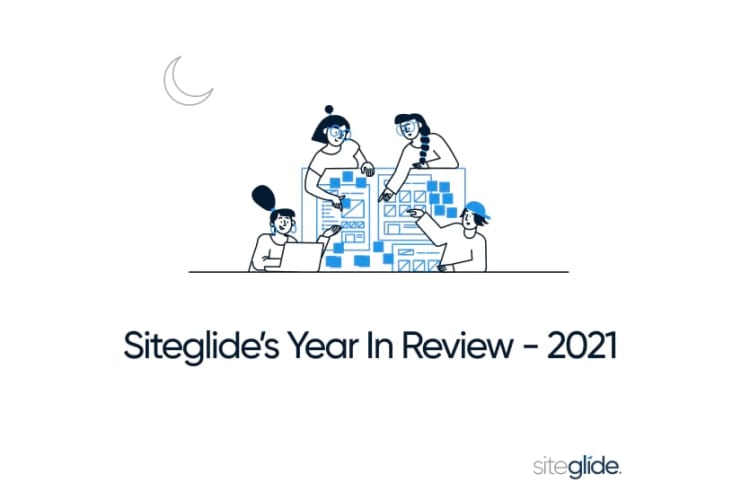What Is A Digital Experience Platform (DXP)?

At Siteglide, we've talked a lot on the topic of Digital Transformation and while it was already a hot topic before COVID-19, it is now crucial that businesses focus on how they can get the most out of technology.
Businesses need to realise that outdated tech stacks will hold them back and that they need their data connected across various platforms. With this, we should see a mainstream shift away from traditional platforms where data is siloed and cannot be shared.
Today, websites are being replaced by Digital Experiences where users interact with suppliers online - and this depends on access to data.
The customer journey is as much online as it is offline. Previously, websites were viewed more as brochure sites, or stand-alone marketing tools that did not integrate with new technology, while today, a company’s online platform is often seen as the cornerstone of their business.
A traditional website and CMS cannot cope with omni-channel demands meaning Customer Experience (CX) will suffer as a result.
Having a website is not enough - to create memorable and scalable experiences, businesses should focus on replacing their Content Management System (CMS) with a Digital Experience Platform (DXP).
What is a Digital Experience Platform (DXP)
Gartner defines a Digital Experience Platform (DXP) as:
“An integrated and cohesive piece of technology designed to enable the composition, management, delivery and optimisation of contextualised digital experiences across multi experience customer journeys"
Simply put, a DXP unifies marketing, eCommerce and services and delivers a holistic view of data across all channels.
By using a DXP, companies are able to tailor their customers' experience across multiple devices and platforms.
CMS to DXP
The DXP has evolved from the Content Management System (CMS) and while the CMS has served its purpose well in enabling content collaboration, today many businesses are adapting their strategies to put a priority focus on customer experience as a unique selling point.
The CMS has evolved from a monolithic closed box system to an API-first Headless or Decoupled system that can share content to various channels.
A CMS comes with its limitations and DXPs are a step forward for brands to be able to generate Digital Experiences through apps, portals and more.
Unlike a CMS, a DXP allows integration across channels, touchpoints and devices with no boundaries or complexity.
Who Should be Using a DXP?
- If a business is digital
If a business interacts primarily with its customers through an online channel a DXP is key to building Digital Experiences. - If a business has various touchpoints
If a business has multiple touch points, then using a DXP will help in streamlining processes - If Customer Experience is a key business strategy
For businesses that place customer experience at the core of their business strategy
What are the key features of a DXP?
A DXP offers multiple touchpoints that support the customer life cycle across the various digital platforms and offers endless opportunities for personalisation and richer online experiences. Importantly, a DXP is able to change and scale alongside a business.
- API Integration
An API-driven DXP will allow businesses to bring together all products and work more effectively - Flexible Architecture
A DXPs core modular architecture allows for flexibility and scalability. - CMS
A CMS is just one important module that makes up a DXP and is responsible for managing and delivering to channels for audience consumption. - CRM
The CRM at the core makes the WebApps, eCommerce, Marketing and Reporting tools - among others - even more powerful. - eCommerce
DXPs allow you to not only offer shopper convenience online, but to also personalise the buyers shopping experience with inventory management, shopping cart, payment and more. - Custom Databases
With Custom Databases you can create items via form, create and update content from spreadsheets and build bespoke databases.
What are the benefits of a DXP?
- Brand Loyalty
The consumer today expects more of brands, they expect a service that is convenient and seamless. By offering touch points across all platforms, and personalising customer service businesses will, in turn. win customer loyalty. - Future proof
A DXP platform will grow with a business and scale as and when necessary. Instead of including all the features that a DXP has to offer, which may not be needed immediately, a DXP is flexible and will allow a feature to be added, removed or updated. This means that businesses can be confident that their online business will be future-proof and will not be affected by any new technologies or platforms. - Customer insights
A DXP allows a business to capture customer data and gain insight into their customers, their likes and their dislikes. With this information at hand, businesses can then conduct targeted and personalised campaigns and promotions. - automate processes
With a DXP you can automate processes and tasks such as order management, support and sales flows that will save time and drive sales!
Create Digital Experiences with Siteglide

Siteglide unifies marketing, commerce, and service via a Headless API-driven architecture that delivers a holistic view of data across all channels.
Siteglide helps agencies build and manage scalable Digital Experiences such as online courses, Marketplaces, Membership Sites and Customer portals.
A G2 winner, Siteglide has to date won 13 G2 awards and is currently the DXP leader for Small Business with the highest rated support in DXP and WCM.
Why use Siteglide?
- Siteglide is a managed platform meaning that you can focus on winning new clients rather than battling with technology
- Forget plugin and security issues with our Enterprise-grade infrastructure
- With Siteglide Studio you can design and build better experiences, faster
- Siteglide’s site importer tool can automatically optimise your site! Siteglide’s platform also has additional Search Engine Optimisation (SEO) tools to further enhance your rankings
- Siteglide gives you total access to data: Capture, Import, Export, Query, Output, Modify and Share
- The highest voted support for any CMS or DXP on G2 (as of January 2021). Read what our G2 customers have to say about Siteglide
According to Gartner's 2020 report, "Through 2021, 85% of the effort and the cost involved in a DXP program will be spent on integrations with internal and external systems,..." The report also said that, "DXPs must be flexible, adaptable and pluggable"
With a DXP a business will be able to deliver personalised brand experiences across a wide range of digital touchpoints. What's more, a DXP is always evolving and improving features and integrations to help a business keep up with the latest trends and technology.
Sign up for free!
Are you ready to start building your Digital Experience? Sign up for free!



